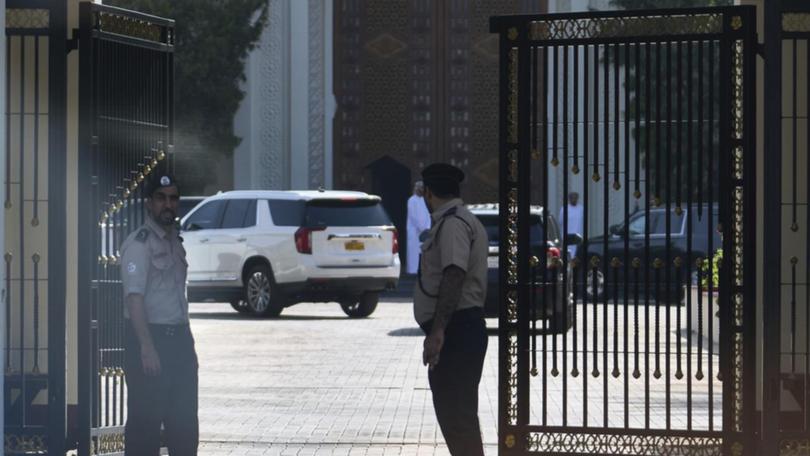Iran and US agree to reconvene after 'positive' talks over nuclear program

Iran and the United States will hold more negotiations next week over the Middle Eastern country’s nuclear program, both sides say at the end of a first round of talks in Oman described as “positive” and “constructive”.
“I think we are very close to a basis for negotiations and if we can conclude this basis next week, we’ll have gone a long way and will be able to start real discussions based on that,” Iranian Foreign Minister Abbas Araqchi told state television.
Araqchi posted on his Telegram channel that his delegation had a brief encounter with its US counterpart, headed by US President Donald Trump’s envoy Steve Witkoff, after they exited the indirect talks mediated by Oman.
Sign up to The Nightly's newsletters.
Get the first look at the digital newspaper, curated daily stories and breaking headlines delivered to your inbox.
By continuing you agree to our Terms and Privacy Policy.“After the end of more than two and a half hours of indirect talks, the heads of the Iranian and American delegations spoke for a few minutes in the presence of the Omani foreign minister as they left the talks,” Araqchi said.
He said the talks took place in a “productive, calm and positive atmosphere”.
“Both sides have agreed to continue the talks ... probably next Saturday ... Iran and the US side want an agreement in the short term. We do not want talks for (the sake of) talks,” Araqchi added.
A White House statement called the talks involving Witkoff, US ambassador to Oman Ana Escrogima and Araqchi “very positive and constructive”.
“These issues are very complicated, and Special Envoy Witkoff’s direct communication today was a step forward in achieving a mutually beneficial outcome,” it said.
“The sides agreed to meet again next Saturday.”
The talks began about 330pm local time on Saturday.
The two sides spoke for more than two hours, ending the talks about 5.50pm.
The convoy believed to be carrying Witkoff returned to Muscat, the capital of Oman, before disappearing into traffic around a neighbourhood that is home to the US embassy.
Omani Foreign Minister Badr al-Busaidi said on X the talks had taken place “in a friendly atmosphere conducive to bridging viewpoints”.
While the US side can offer sanctions relief for the beleaguered Iranian economy, it remains unclear just how much Iranian officials will be willing to concede.
Under a 2015 nuclear deal, Iran could only maintain a small stockpile of uranium enriched to 3.67 per cent.
Today, Iran’s stockpile could allow it to build multiple nuclear weapons if it so chooses and it has some material enriched up to 60 per cent, a short technical step away from weapons-grade levels.
Judging from negotiations since Trump unilaterally withdrew the US from the deal in 2018, Iran will likely ask to keep enriching uranium up to at least 20 per cent.
Signs of progress could help cool tensions in a region aflame since 2023 with wars in the Gaza Strip and Lebanon, missile fire between Iran and Israel, Houthi attacks on Red Sea shipping and the overthrow of the government in Syria.
with AP.
